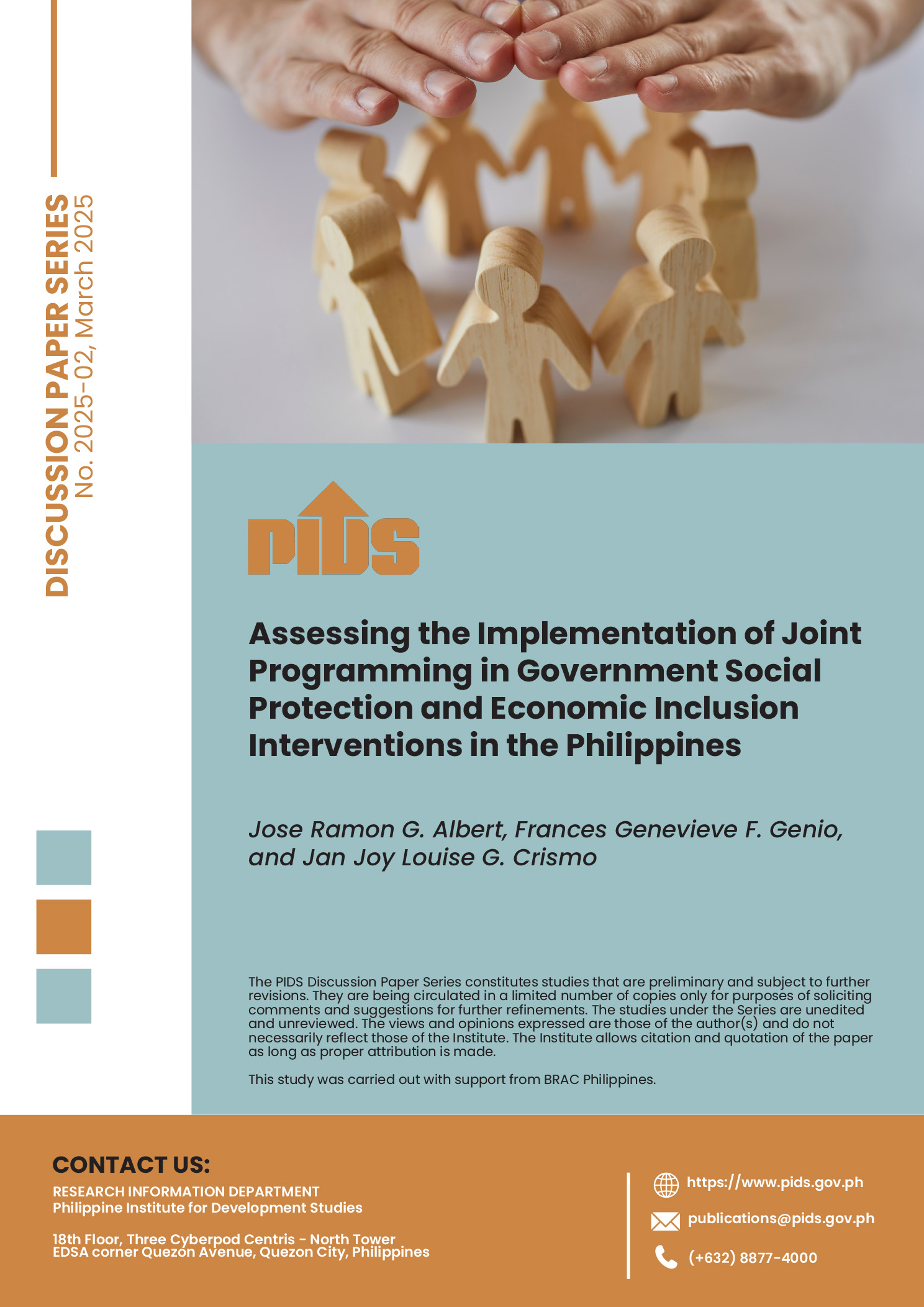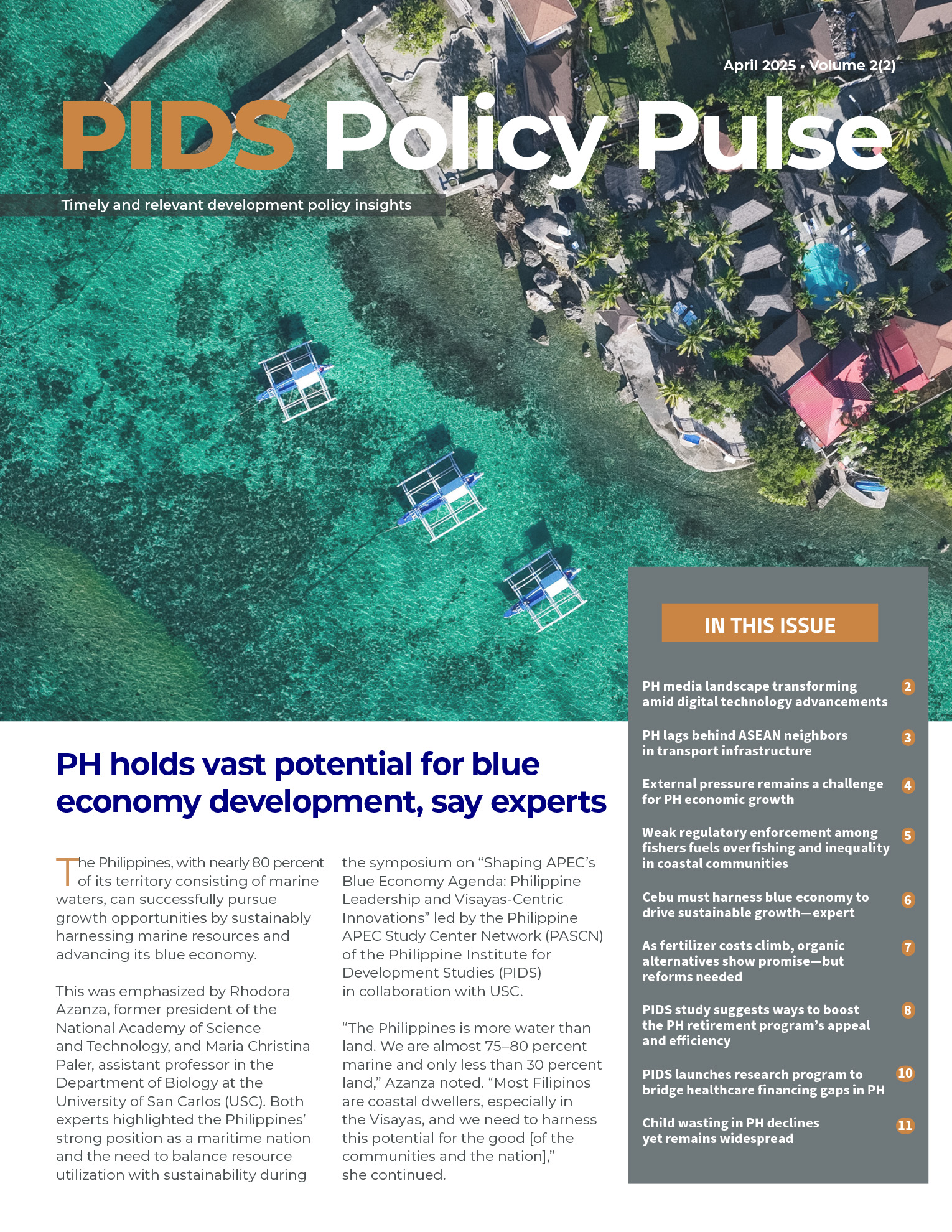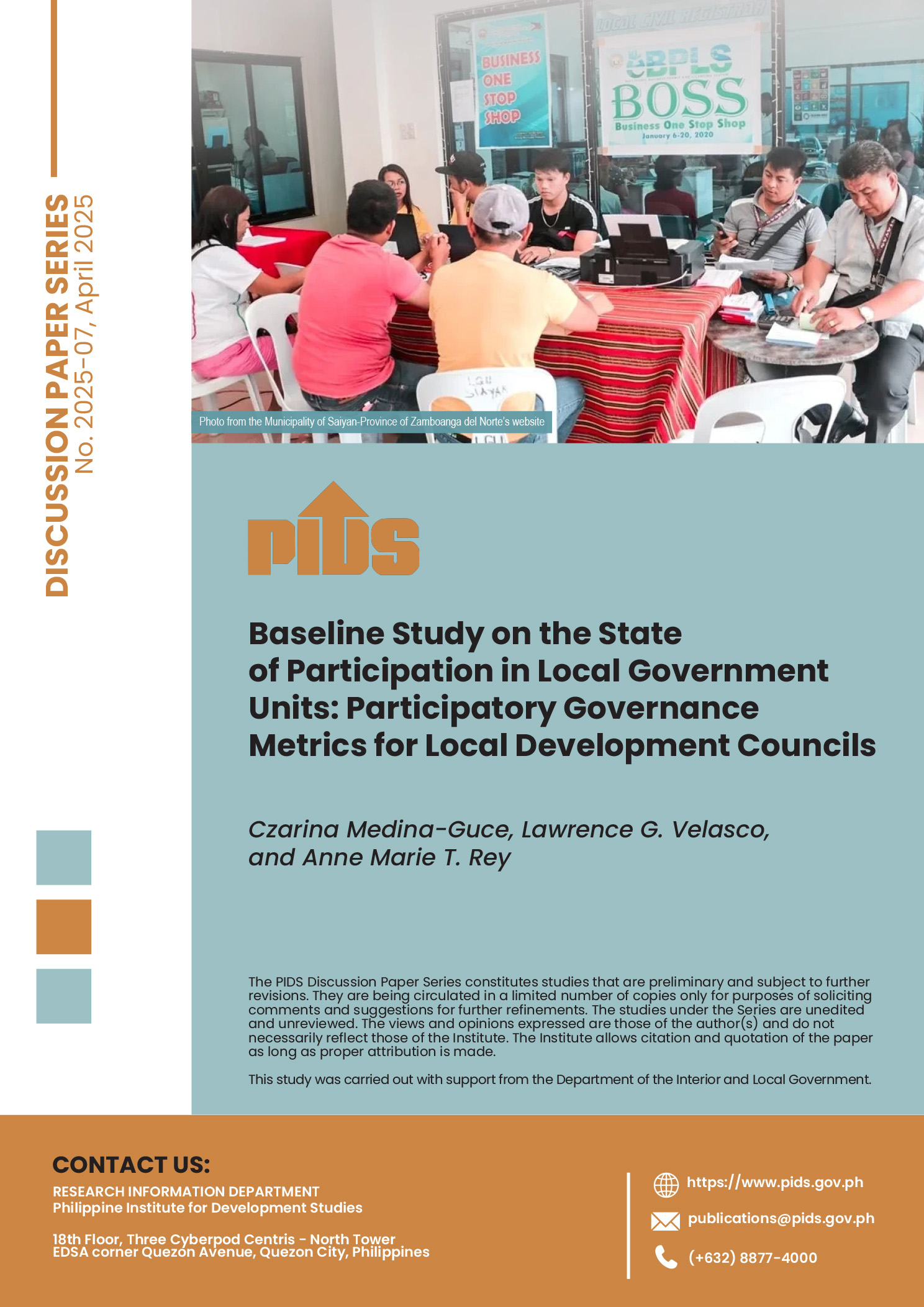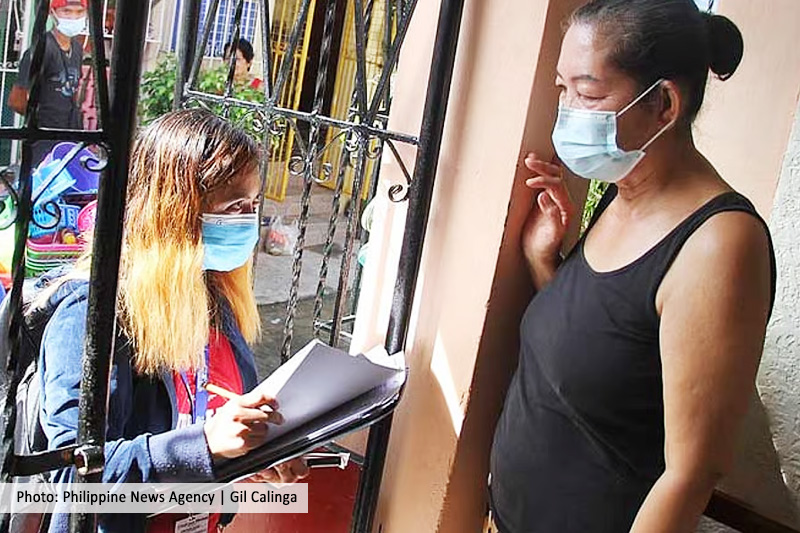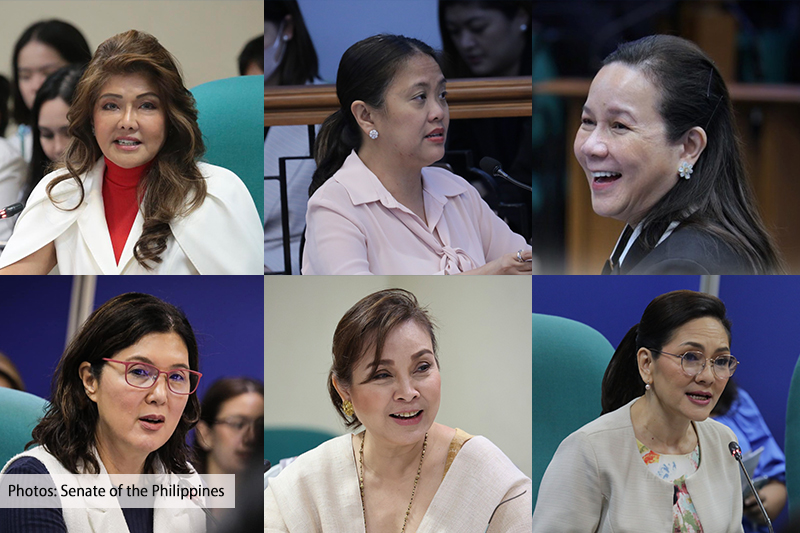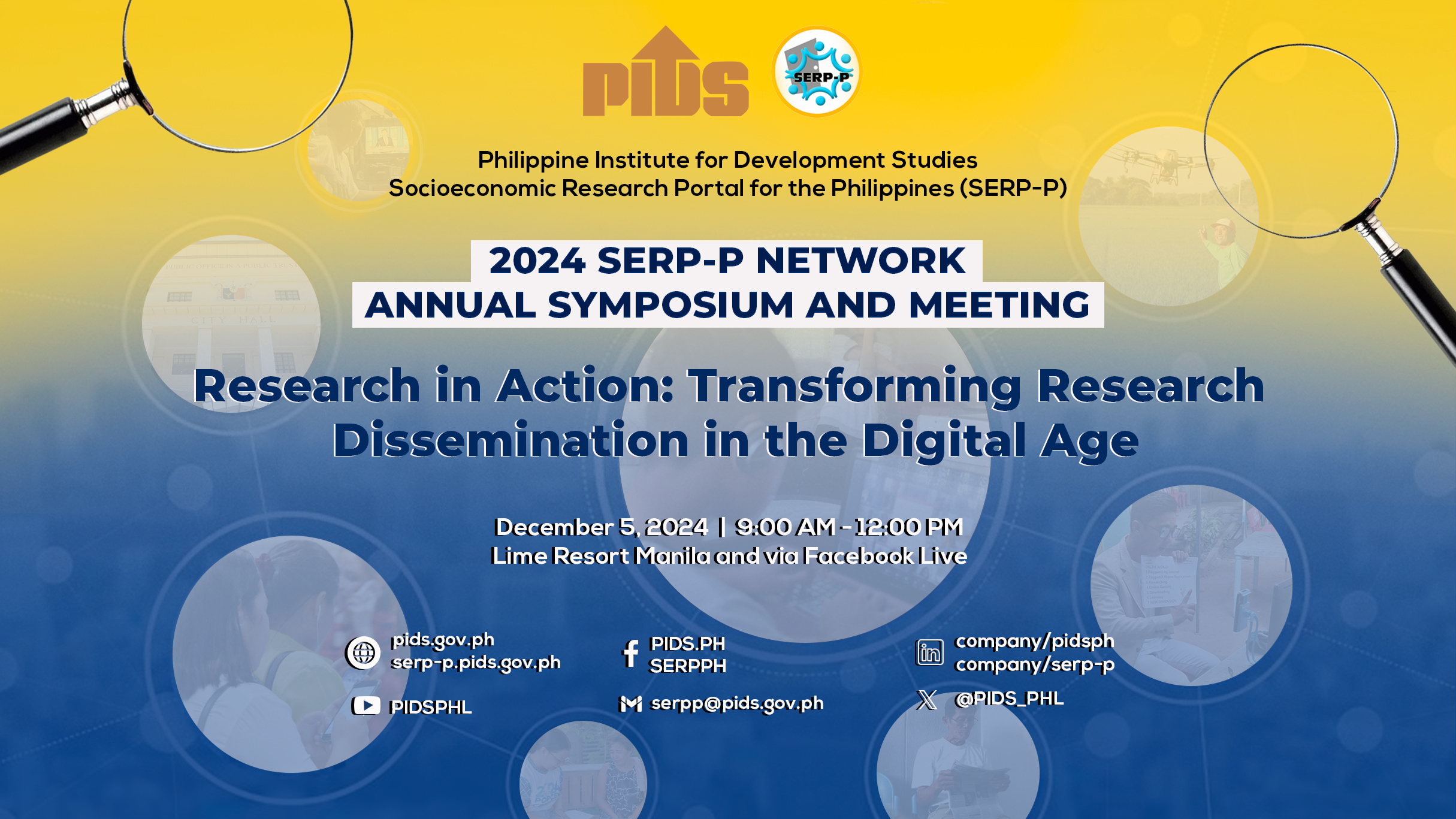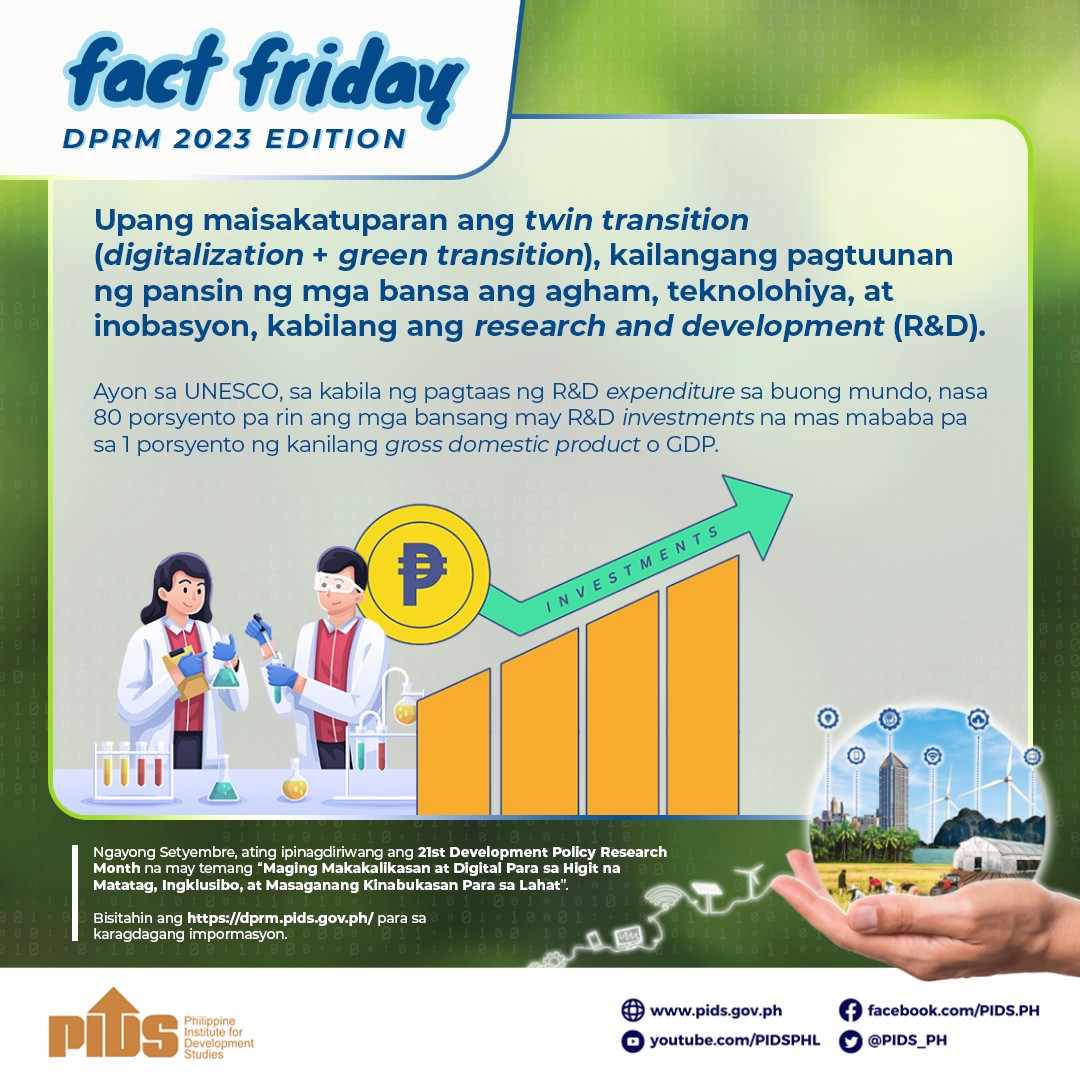September is Development Policy Research Month (DPRM). The issuance of Proclamation 247 in 2002 was a visionary move by the Arroyo administration, putting special focus on policy research and highlighting its critical importance in socioeconomic development.
For this year, the observance of policy research month pursues a timely theme – “Strengthening Decentralization for Regional Development” – as it coincides with the Duterte administration’s proposal to shift to a federal system of government.
Given the dearth of honest-to-goodness research in the country on federalism, the Philippine Institute for Development Studies (PIDS) is to be commended for placing this issue under a spotlight.
PIDS, the state-run think tank that leads the annual development policy research celebrations, is asking the right questions. What are the objectives of the federalism push? Is it merely to decentralize power and resources from Metro Manila? How does federalism dovetail with the government’s longstanding objective to reduce poverty and promote development in the regions?
PIDS President Gilberto Llanto correctly notes the lack of multidisciplinary research on federalism, and the need for clarity in the discourse on the topic, which is often muddled and laser-focused on redrawing the map of the Philippines.
The think tank points to a gamut of issues that must be addressed before the country shifts to a federal form of government.
Among these are the allocation of functional responsibilities, taxing powers and management of financial resources, delineation of territorial boundary of states, the treatment of local government units, political stability, political parties and political dynasties.
Still another important point of contention are areas of governance that would be delegated to the federal government and those that need to be decentralized at the state governments. The focus of discussion is often decentralization. How about centralization?
What best practices in federalism ought to be adopted from countries like the United States, Germany and even our neighbor, Malaysia? More importantly, what pitfalls are to be avoided in the transition to federalism? These are important questions that beg answers, in the form of policy research.
It should be noted that a year after the creation of the 25-man constitutional commission tasked to revise the 1987 Constitution or craft a new one, Malacañang has yet to name its members.
PIDS is doing the nation a favor by steering the federalism debate toward the right issues even before the Palace commission begins its work.
“A very important challenge before us in the policy research and academic community is to clarify the policy discourse on federalism. There is not only one model of federalism that countries with a federal structure of government have followed. It can be assumed that the federal states that we have today had agreed to adopt a particular federalist structure that would best address their deeply cherished goals, challenges, and experiences,” Llanto said during the annual Public Policy Conference on September 19.
The annual observance of Development Policy Research Month is a yearly reminder of the need for critical thinking in government, as well as to present evidence as basis for public policy. The push for federalism needs to be well thought out, or it will be a leap into the unknown.
For this year, the observance of policy research month pursues a timely theme – “Strengthening Decentralization for Regional Development” – as it coincides with the Duterte administration’s proposal to shift to a federal system of government.
Given the dearth of honest-to-goodness research in the country on federalism, the Philippine Institute for Development Studies (PIDS) is to be commended for placing this issue under a spotlight.
PIDS, the state-run think tank that leads the annual development policy research celebrations, is asking the right questions. What are the objectives of the federalism push? Is it merely to decentralize power and resources from Metro Manila? How does federalism dovetail with the government’s longstanding objective to reduce poverty and promote development in the regions?
PIDS President Gilberto Llanto correctly notes the lack of multidisciplinary research on federalism, and the need for clarity in the discourse on the topic, which is often muddled and laser-focused on redrawing the map of the Philippines.
The think tank points to a gamut of issues that must be addressed before the country shifts to a federal form of government.
Among these are the allocation of functional responsibilities, taxing powers and management of financial resources, delineation of territorial boundary of states, the treatment of local government units, political stability, political parties and political dynasties.
Still another important point of contention are areas of governance that would be delegated to the federal government and those that need to be decentralized at the state governments. The focus of discussion is often decentralization. How about centralization?
What best practices in federalism ought to be adopted from countries like the United States, Germany and even our neighbor, Malaysia? More importantly, what pitfalls are to be avoided in the transition to federalism? These are important questions that beg answers, in the form of policy research.
It should be noted that a year after the creation of the 25-man constitutional commission tasked to revise the 1987 Constitution or craft a new one, Malacañang has yet to name its members.
PIDS is doing the nation a favor by steering the federalism debate toward the right issues even before the Palace commission begins its work.
“A very important challenge before us in the policy research and academic community is to clarify the policy discourse on federalism. There is not only one model of federalism that countries with a federal structure of government have followed. It can be assumed that the federal states that we have today had agreed to adopt a particular federalist structure that would best address their deeply cherished goals, challenges, and experiences,” Llanto said during the annual Public Policy Conference on September 19.
The annual observance of Development Policy Research Month is a yearly reminder of the need for critical thinking in government, as well as to present evidence as basis for public policy. The push for federalism needs to be well thought out, or it will be a leap into the unknown.

